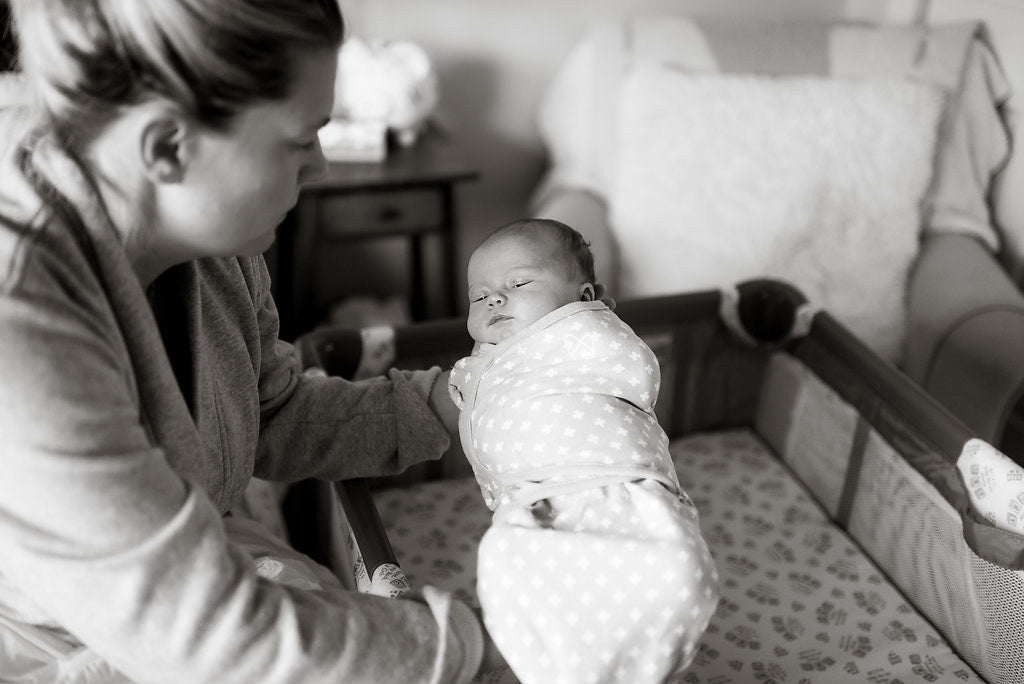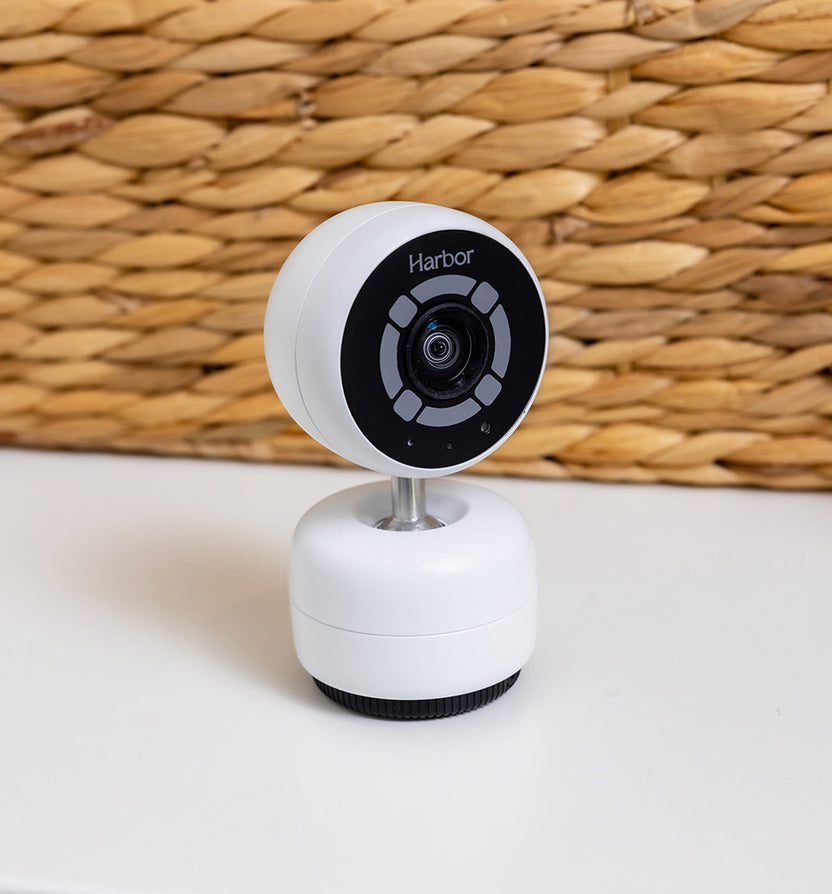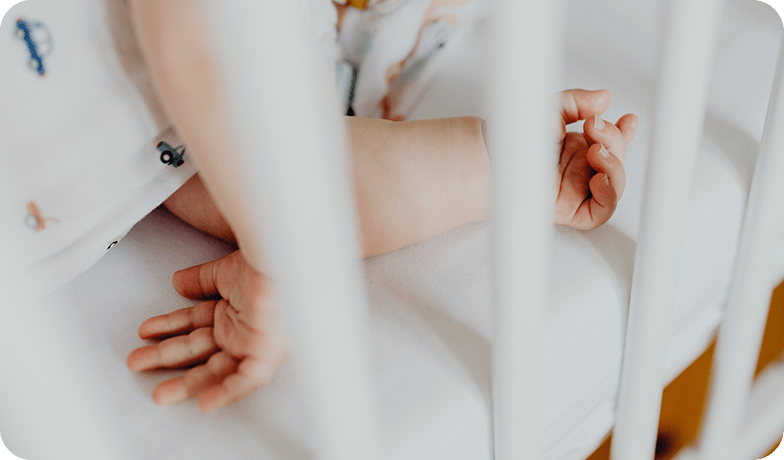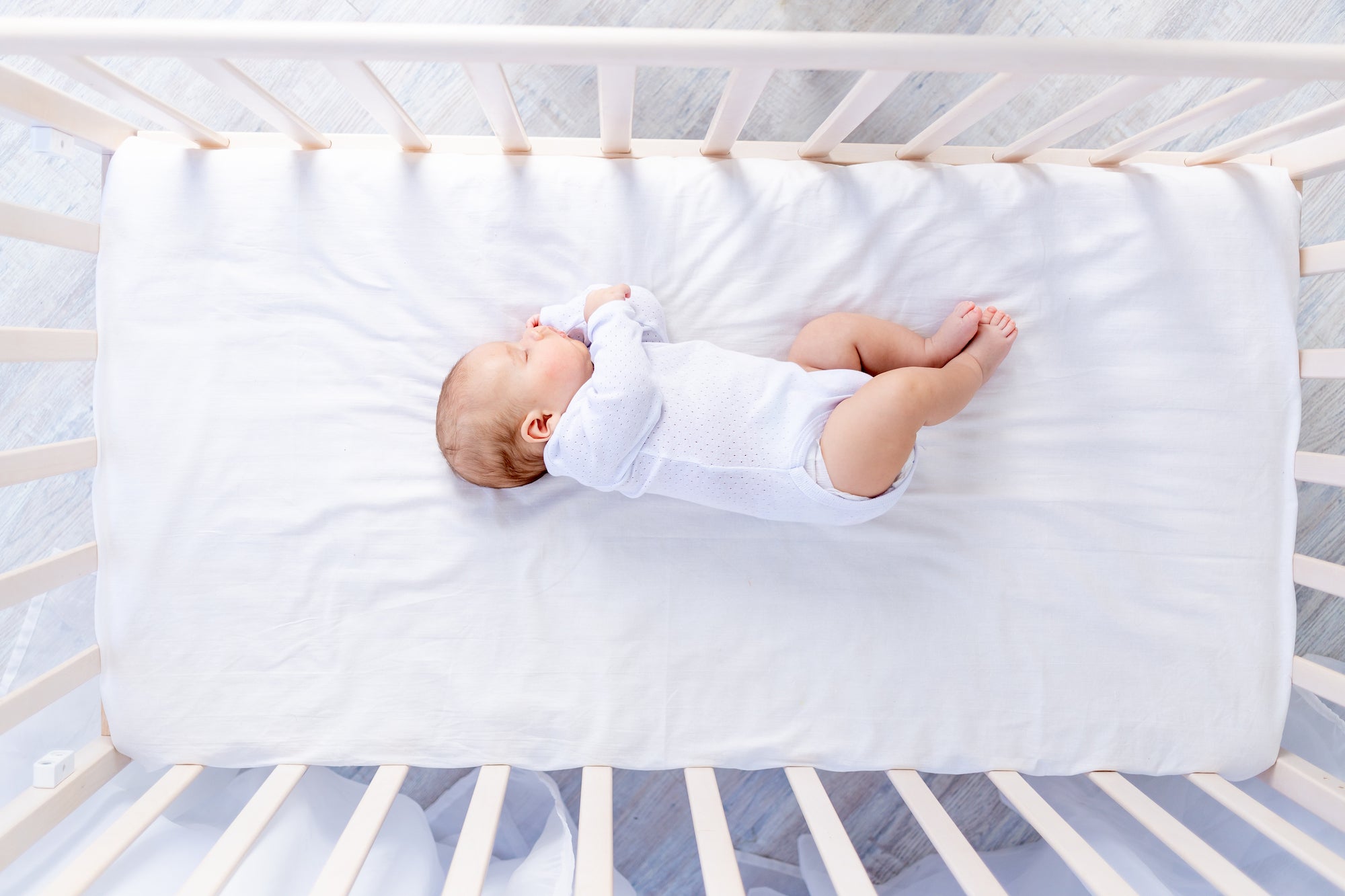
By Kelly Brown, RN, Director of Nursing
As a pediatric nurse —and as a mom—I know how quickly a baby’s breathing sounds can cause anxiety. One moment, your newborn seems to be sleeping peacefully; the next, they grunt, snore, or pause briefly between breaths. It’s completely normal to wonder: Is this okay? Should I be worried?
The good news is that in most cases, unusual breathing sounds during sleep are normal for newborns. Let’s break down what’s typical, what’s not, and when to check in with your pediatrician.
Understanding Newborn Sleep Stages & Breathing Patterns
Newborns sleep in short, frequent cycles—typically every 45 to 60 minutes—and spend around 50% of that time in what’s called active sleep, the infant version of REM sleep. During active sleep, babies tend to breathe irregularly, and may grunt, sigh, or even briefly pause their breathing.
In contrast, during quiet sleep, newborns breathe slowly and steadily, with minimal movement. This is often when parents feel most reassured. But it's normal—and expected—for breathing to shift as babies cycle between stages.
A brief overview of newborn sleep stages:
-
Active Sleep: Irregular, faster breathing; common grunting, twitching, and brief pauses.
-
Quiet Sleep: Calm, steady breathing with little body movement.
-
Drowsy Stage: Transitional breathing, may fluctuate between patterns.
Normal Newborn Breathing: What to Expect
Newborns have small nasal passages, immature airways, and developing sleep-wake cycles. As a result, their breathing during sleep can sound irregular, noisy, or even labored—especially in the first few weeks of life.
Here are a few common, normal breathing patterns you might notice:
-
Snoring or Noisy Breathing: Babies often breathe through their noses and may snore or sound congested, especially if there’s dried milk, mucus, or swelling from birth.
-
Periodic Breathing: This is a normal pattern in which your baby breathes rapidly for a few seconds, pauses for up to 10 seconds, then resumes breathing. It’s most common during sleep and usually resolves by 6 months of age.
-
Grunting: Some newborns grunt during active sleep or while transitioning between sleep stages. If they’re otherwise healthy, gaining weight, and have normal color, this is typically not a concern.
What Causes Snoring in Newborns?
Snoring in babies is usually caused by one of the following:
-
Nasal Congestion: Newborns are obligate nose breathers. Even a little congestion can make their breathing sound loud or “snorty.”
-
Normal Airway Size: Their airways are narrow and soft, which can vibrate as air moves through—creating a snoring sound.
-
Positioning: Sometimes babies snore more when sleeping on their backs if their head is turned slightly.
-
Dry Air or Irritants: Dry environments or exposure to smoke and allergens can inflame nasal passages.
When to Worry: Red Flags in Newborn Breathing
While most snoring and noisy breathing in newborns are benign, there are a few red flags parents should watch for:
-
Pauses in breathing longer than 15–20 seconds (especially with color change or limpness)
-
Blue or dusky skin, particularly around the lips or face
-
Persistent grunting with every breath, not just while asleep
-
Nasal flaring, chest retractions, or rapid breathing (more than 60 breaths per minute)
-
Poor feeding, lethargy, or failure to gain weight
-
Loud, chronic snoring beyond infancy, which could signal obstructive sleep apnea
If you notice any of these signs, contact your pediatrician right away or seek emergency care if your baby appears in distress.
Conditions That May Affect Newborn Breathing
Most babies with noisy sleep breathing are healthy. However, some conditions can contribute to abnormal breathing patterns:
-
Transient Tachypnea of the Newborn (TTN): Common in babies born by C-section or prematurely; causes fast breathing in the first few days of life.
-
Laryngomalacia: A floppy airway condition that can cause high-pitched breathing or noisy sleep. Usually resolves with time.
-
Obstructive Sleep Apnea (OSA): Rare in newborns, but more likely in babies with craniofacial differences or certain medical conditions.
-
Upper Respiratory Infections: Can worsen congestion and snoring temporarily.
Safe Sleep Tips for Better Breathing
Creating a safe and optimal sleep environment can reduce breathing difficulties:
-
Always place your baby on their back to sleep, on a firm, flat mattress with no loose bedding.
-
Keep your baby’s sleep space free from cords, wedges, or sleep positioners.
-
Use a cool mist humidifier if your home is dry.
-
Avoid exposure to cigarette smoke, even on clothing or hair.
-
Suction the nose gently with a bulb syringe if there’s visible mucus.
When in Doubt, Ask
You’re not alone in wondering if your baby’s breathing is normal—and more often than not, it is.
Parental instincts are powerful—if your baby’s breathing doesn’t seem right, trust your gut and talk to your pediatrician. A quick evaluation can offer peace of mind or catch something that needs follow-up.




